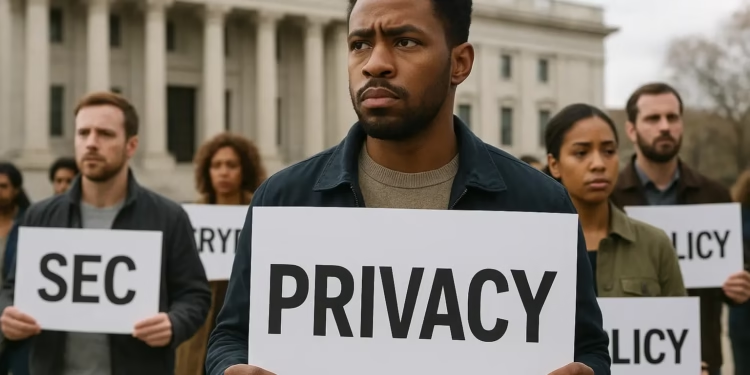The SEC crypto task force is placing privacy protections at the core of its latest policy discussions, Commissioner Hester Peirce said in a September 8 notice. Peirce, who leads the task force, stressed that privacy-preserving technologies are “critically important” in ensuring that Americans can control how their personal data is shared.
“Understanding recent developments in privacy-protecting tools will assist the SEC and other financial regulators as we work on policy solutions in the crypto space,” — Hester Peirce, Commissioner, U.S. Securities and Exchange Commission.
Her comments come amid heightened regulatory scrutiny of privacy-enhancing protocols, following the criminal case against Tornado Cash co-founder Roman Storm. While law enforcement agencies view such tools as potential enablers of illicit finance, Peirce has consistently argued that protecting the right to private transactions is a constitutional issue.
“We should take concrete steps to protect people’s ability not only to communicate privately, but to transfer value privately, as they could have done with physical coins in the days in which the Fourth Amendment was crafted,” — Peirce, during the Science of Blockchain Conference.
The SEC will continue its dialogue on October 18 with the sixth roundtable in an ongoing series that began in August. The events, organized by the SEC crypto task force, cover topics ranging from market structure and investor protection to oversight of digital assets.
SEC shifts approach under new administration
The evolving agenda reflects a broader change in tone under President Donald Trump’s second administration. With a pro-innovation stance, the White House has encouraged regulators to adopt more collaborative approaches toward digital assets.
Earlier this month, SEC Chair Paul Atkins released the Spring 2025 regulatory agenda, directing the Commission to clarify rules on token issuance, custody, and exchange operations. The SEC crypto task force is expected to play a central role in crafting these guidelines.
“The SEC is moving away from a one-size-fits-all enforcement model and toward rules that balance investor protection with technological innovation,” said Sarah Hammer, Executive Director of the Wharton Cypher Accelerator, in an interview.
Collaboration with other regulators
The SEC crypto task force has also expanded interagency cooperation. On September 29, the SEC and Commodity Futures Trading Commission (CFTC) will co-host a joint roundtable to explore “innovation exemptions” for decentralized finance (DeFi). These exemptions could allow peer-to-peer trading and other advanced financial operations under defined guardrails.
Both agencies have emphasized the need for regulatory clarity.
“We want to provide markets the clarity they deserve while ensuring innovation does not come at the expense of stability,” — joint SEC and CFTC statement.
The following day, the SEC announced a new cross-border task force aimed at tackling transnational fraud. The initiative will target offshore firms suspected of securities law violations, particularly pump-and-dump schemes and market manipulation. The SEC crypto task force is expected to coordinate closely with this new unit on cases involving digital assets.
Implications for policymakers
For policymakers, the growing influence of the SEC crypto task force highlights the agency’s dual mandate: safeguarding financial markets while enabling innovation. Peirce’s emphasis on privacy suggests that future regulatory frameworks may attempt to strike a more delicate balance between civil liberties and enforcement.
“The privacy debate is not just a technical issue; it’s a constitutional one,” said Jerry Brito, Executive Director at Coin Center. “If regulators fail to protect the right to transact privately, they risk undermining both innovation and basic freedoms.”
As the October roundtables approach, industry leaders and legislators alike will be watching whether the SEC crypto task force can bridge competing priorities from privacy and innovation to enforcement and investor protection.
For now, the Commission’s direction signals a clear shift: crypto oversight in Washington will no longer be defined solely by enforcement actions but by an effort to craft rules that recognize both the promise and the risks of blockchain technologies.











